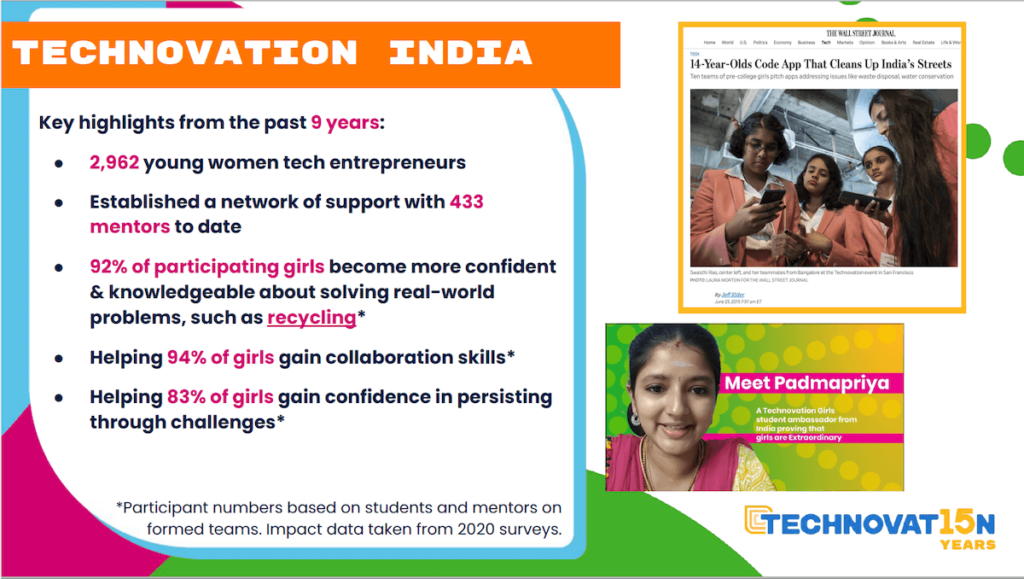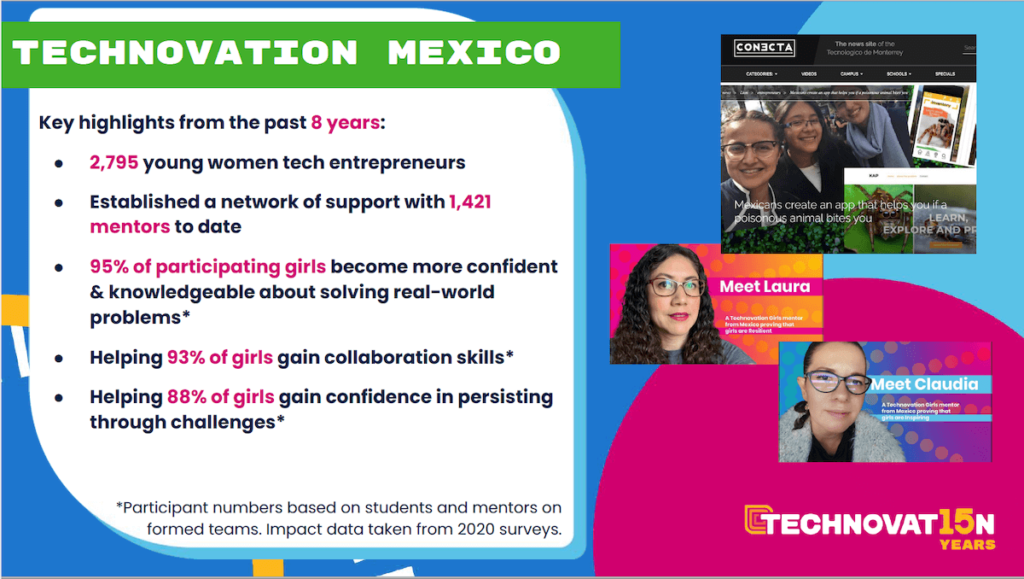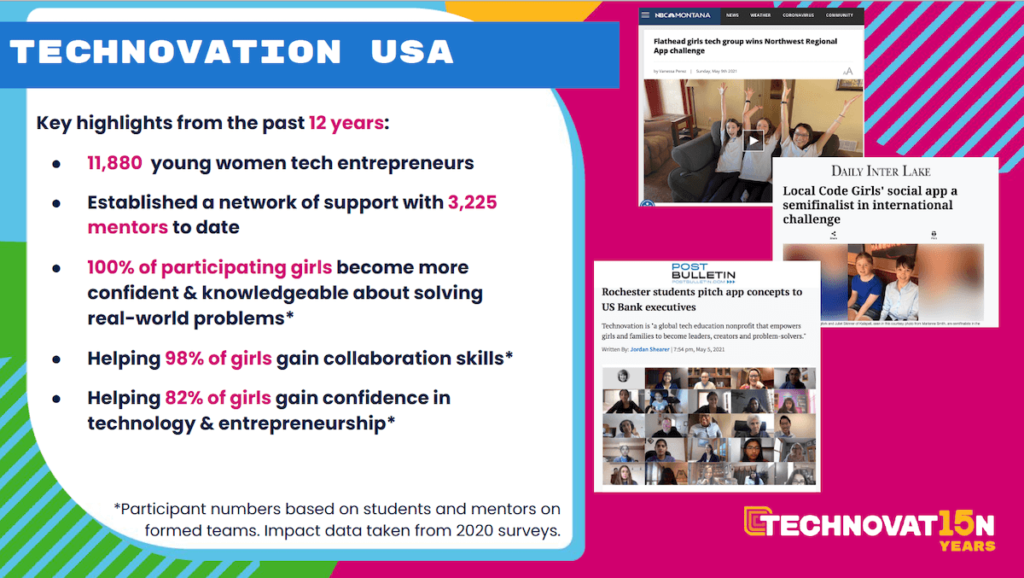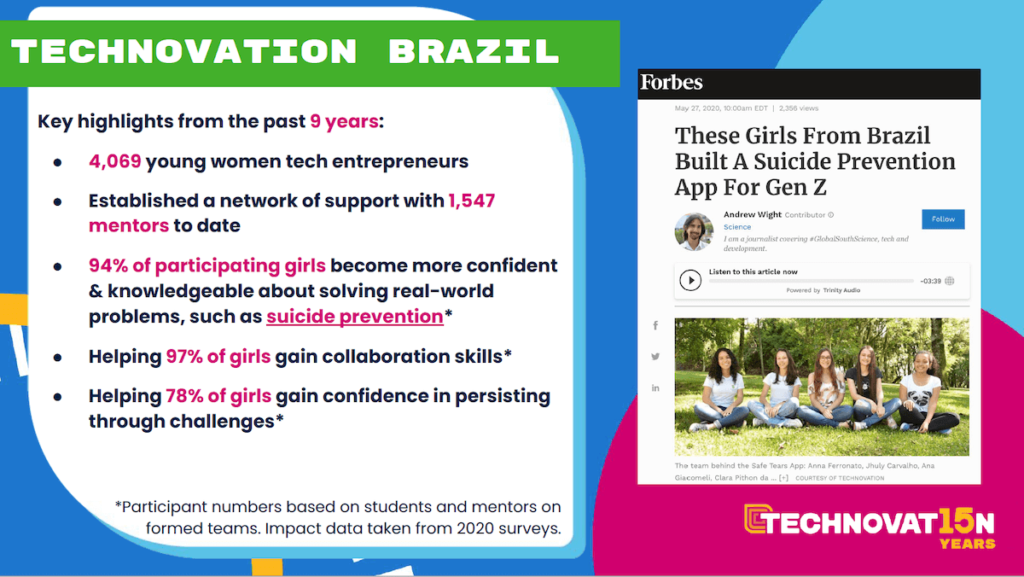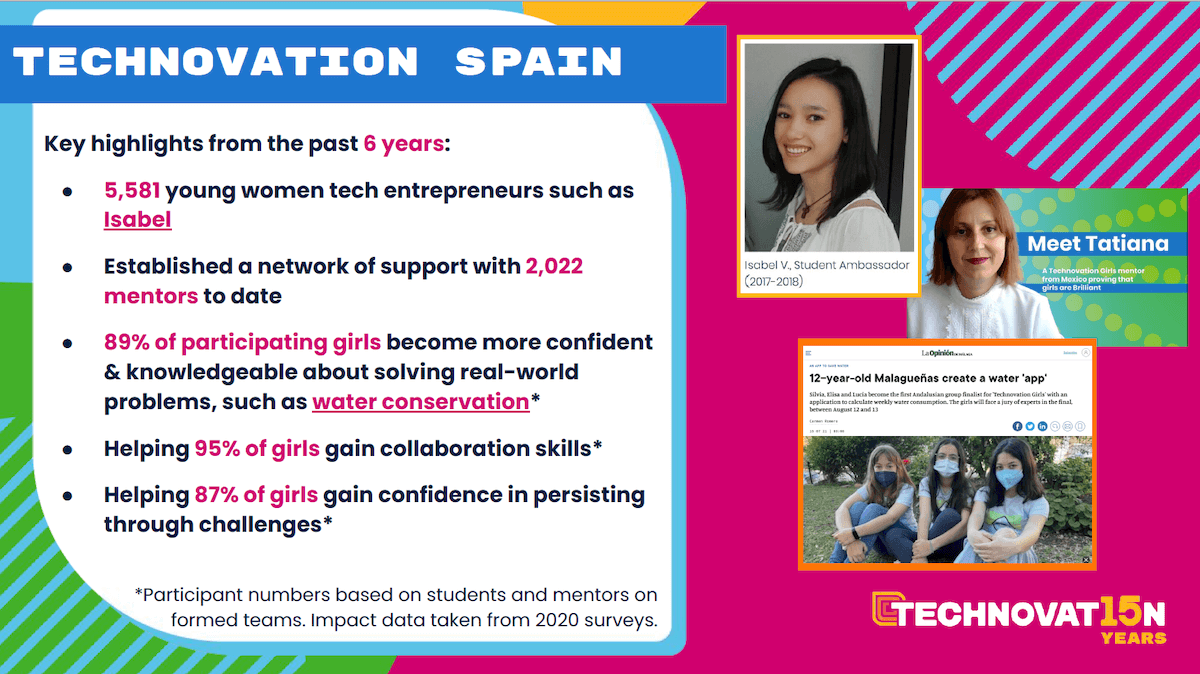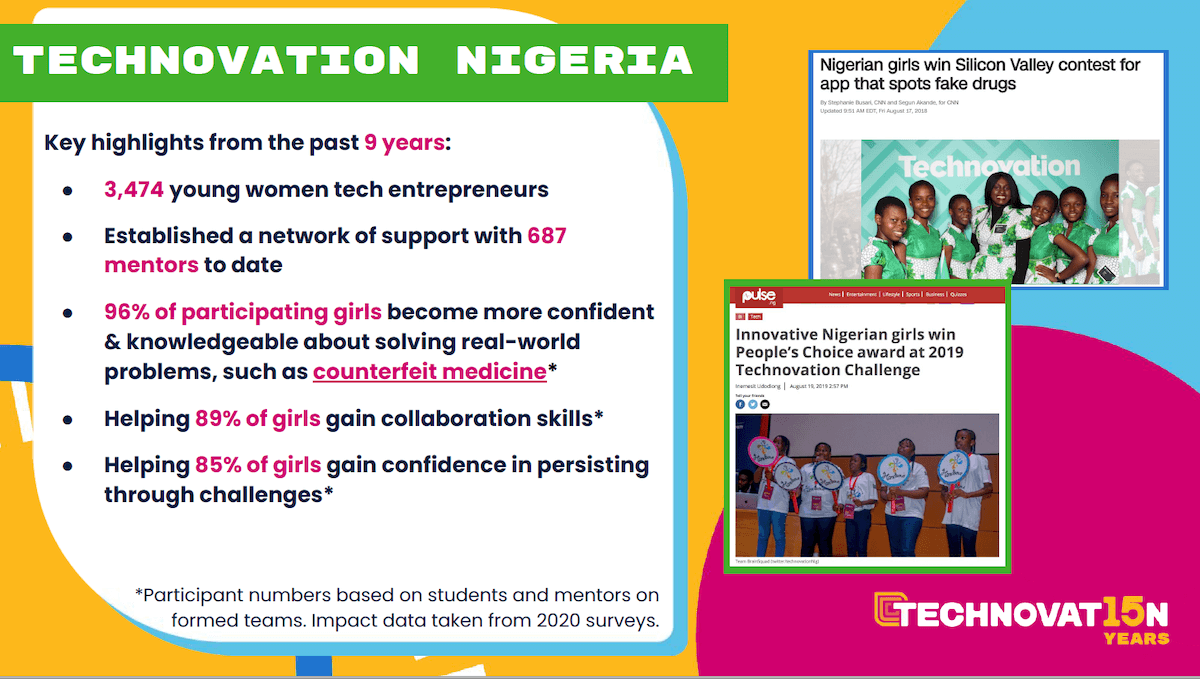Technology is the future, but less than 10% of the tech industry includes women. This lack of equity in STEM is what motivated the establishment of Technovation in 2006, Which has since grown from being a small program in California, to one encompassing 100,000 young women and their families in over 100 countries.
Empowering girls to use cutting-edge mobile & AI technologies to solve real-world problems in their communities is the mission, but after 15 years, the data points to real impact. 76% of alumnae are pursuing STEM degrees, 60% of alumnae are working in STEM careers, 50% of alumnae are leading change in their communities & being honored—and 60% of alumnae credit Technovation for their career choice & increasing their self-efficacy.
The 2021 season was similar to 2020. We were still grappling with the COVID-19 pandemic as well as its effects on our communities. The impact of the pandemic on education, particularly girls’ education, was just coming into focus. But, there was also much to celebrate about the season, and also about the organization’s 15-year anniversary.
For instance, celebration is warranted for the over 2,900 girls from India who have engaged in the program despite cultural obstacles, with 94% reporting improved collaboration skills and 83% gaining confidence in persisting through challenges. Or, the 2,795 Mexican girls of whom 95% report becoming more confident and knowledgeable about solving real-world problems. Or even, the collaborative work being done in the United States, who have grown their network of program mentors to nearly 3,300.
“Our team was composed of girls from all over the country,” said Nicole, a 2021 program participant from Brazil. “Technovation brought together five girls who didn’t even know each other beforehand, allowing them to work on a project that they believe can impact their community. I learned so much working with them!”
Local Impact: Taking a Close Look
Heading into 2022, we’ve spent time analyzing statistics and gathering stories from the last several years, during a time of unparalleled growth for Technovation. Our goal was to paint a clear picture of where we are and where we are going. We looked holistically at the organization’s impact, but also drilled into specific countries and regions. The disparities between these different areas was at times noticeable, but we also found a unifying theme of resiliency and localized success, like the story of Isabel, a program Student Ambassador from Spain—one of over 5,500 young women tech entrepreneurs and program participants from the country.
“Being a Student Ambassador was the best thing I did through this year. I really felt that the work I was doing was truly helping others,” said Isabel.
The highlights from 29 specific areas are presented here as digital impact cards, designed to help tell the story of Technovation girls, ambassadors, and mentors from different parts of the world. Of course, these are just some examples of a cross-section of Technovation’s local impact across the globe. While we haven’t been able to analyze data from every region yet, we are proud of ALL of the girls and Ambassadors around the world making their program unique to their location in so many ways. These examples are reminiscent of nearly every Technovation chapter in every country — all valuable and different, and all having made a conscious effort to empower girls and address gender inequality in STEM.
→ Download all digital regional impact cards
Or, download the card for your region: Kenya, Spain (Aragon, Madrid, Catalunya, Valencia), Nigeria (Abia, Cross, Lagos), Mexico (Ciudad de México, Jalisco, Veracruz), Romania, Brazil, Canada (Alberta, British Columbia, Ontario, Quebec), Uzbekistan, India (Bengaluru, Noida), Armenia, United States (Minnesota, California)


